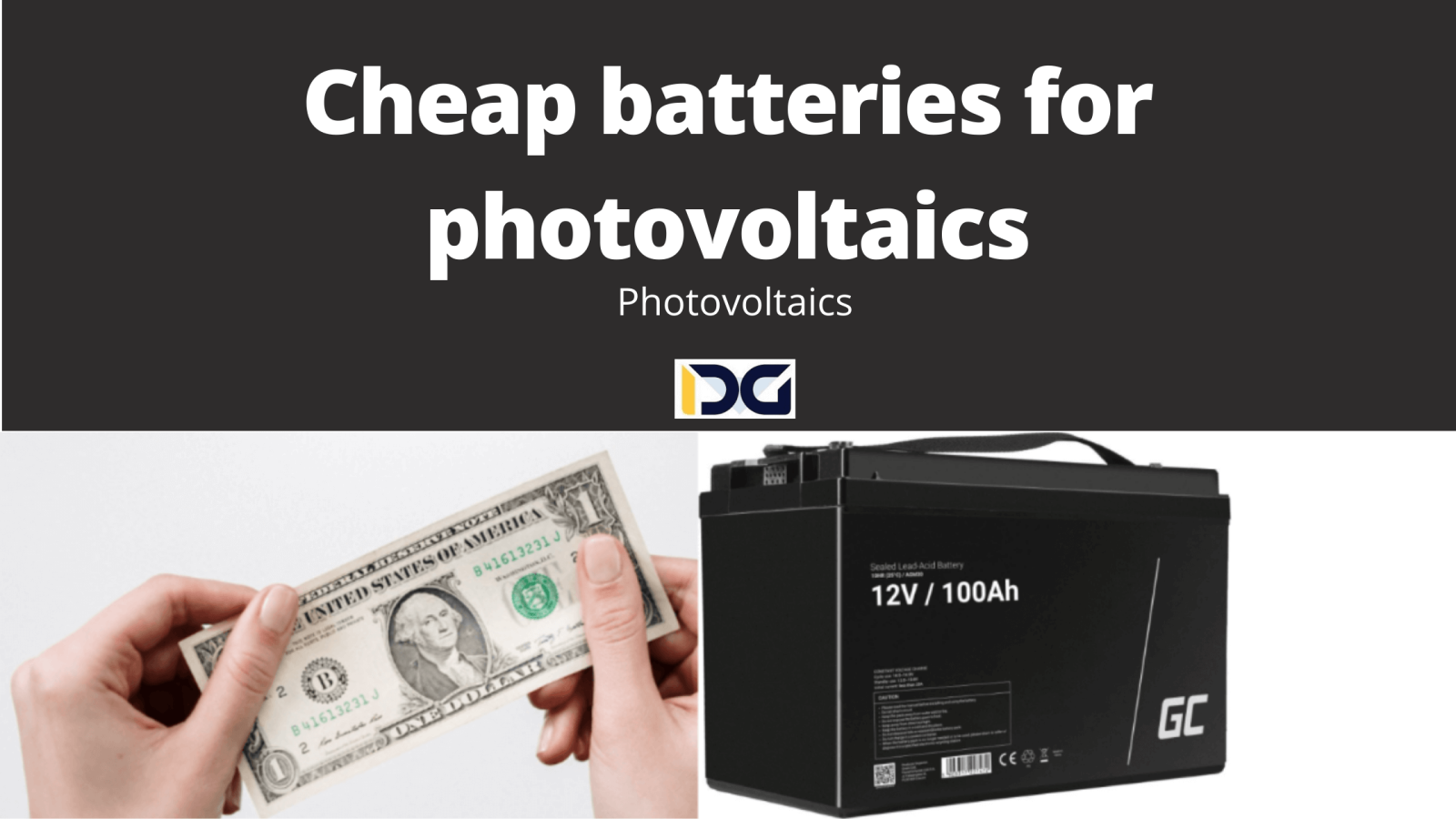
The cheapest photovoltaic batteries are usually lead-acid and gel batteries, although they have a shorter life and require more maintenance than more expensive ones, such as
lithium-ion
. More expensive batteries offer longer life, better energy efficiency and do not require regular maintenance. Cheaper batteries can increase costs for more frequent service and replacement, and can shorten the life of the system. Despite their low initial cost, reviews are mixed due to their short lifespan and requirement for regular maintenance. The choice of cheaper batteries depends on individual energy needs, budget and service availability.
1. what are the cheapest photovoltaic batteries?
Cheapest
batteries for photovoltaic systems
are usually batteries
AGM lead-acid
or
gel (Gel)
.
2. are cheaper batteries as efficient as more expensive ones?
Cheaper batteries may have comparable performance to more expensive ones, but often have a shorter life, fewer charge-discharge cycles and require more maintenance.
3. what are the key differences between cheap and expensive batteries?
More expensive batteries, such as lithium-ion, have a longer life, better energy efficiency, are lighter and do not require regular maintenance. Cheaper batteries may have a shorter life and higher maintenance costs.
4. are there side effects of using cheaper batteries?
Cheaper batteries may require more frequent service, which can mean additional costs and hassle. They may also have a shorter lifespan, which means they will need to be replaced more often.
5. What are the costs of installing low-cost batteries?
The cost of installing cheaper batteries is usually lower than installing more expensive batteries, but this can depend on many factors, such as the size of the system and the complexity of the installation.
6. How do cheaper batteries affect the life of the system?
Cheaper batteries can shorten the life of the system if they require frequent replacements or if their performance declines rapidly over time.
7. What is the cost of servicing low-cost batteries?
The cost of service depends on the type of battery and the frequency of maintenance required. Lead-acid batteries may require more frequent maintenance, which increases service costs.
8. what technologies use cheaper batteries?
Cheaper batteries often use lead-acid AGM or gel technology.
9. What are the opinions on cheaper batteries?
Opinions are mixed. Some people value the cheaper batteries for their availability and low initial cost, but others criticize them for their short lifespan and requirement for regular maintenance.
10. Is it worth investing in cheaper batteries?
The value of investing in cheaper batteries depends on a number of factors, such as your short- and long-term energy needs, budget and service availability. If our independence from grid power is to be as high as possible( Offgrid), then lithium-ion batteries will make the most sense. They definitely have more charge and discharge cycles, which is very important in this case.
11. are there subsidies for low-cost batteries?
The subsidies apply to energy storage facilities. In our country, it is the My Current program of the next edition, which may also include the cost of batteries. It is worth checking local and national grant programs.
12. What are the environmental consequences of using cheaper batteries?
Cheaper batteries, such as lead-acid, can have a greater environmental impact due to the need to replace them more often and recycling issues.
13. Which brands of low-cost batteries are recommended?
The choice of brand may depend on the local market and availability. However, many people recommend Volt Polska, Maxx, or Green Cell brand batteries for their price/quality ratio.
14. are cheap batteries readily available?
Yes, cheaper batteries, such as lead-acid batteries, are usually readily available in many places, both in stationary stores and online.
